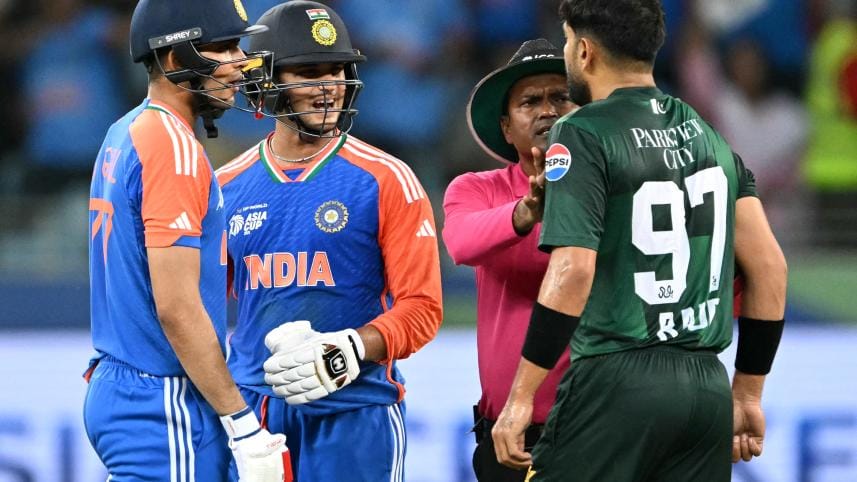Spirit slips away

During Wednesday's Asia Cup Super Four fixture between Bangladesh and India, a particular chant from the stands instantly raised eyebrows.
That expression from the Bangladesh fans at the Dubai International Cricket Stadium had nothing to do with cricket; nor did it carry any sign of nationalism, or typical banter. In the last World Cup, a group of Indian supporters was also seen involved in similar activity during their match against Pakistan.
The Asia Cup was originally launched to foster harmony among teams in the region. In recent years, however, it has been organised mainly in line with the global calendar, with schedules ensuring multiple India-Pakistan matches. On paper, the Asian Cricket Council (ACC) says it aims to help teams prepare for world events; in practice, the tournament has lost much of that spirit, creating a setting where genuine cricket fans often end up anxious rather than entertained.
This edition has felt particularly tense. It began with Indian players declining to shake hands with Pakistanis after a group stage match and escalated to gestures such as Sahibzada Farhan's "rifle-pointing" celebration and Haris Rauf's "fighter jets-crashing" signal during Sunday's Super Fours clash. Both were widely circulated on social media, prompting the India cricket board (BCCI) to lodge an official complaint with the International Cricket Council (ICC).
The Pakistan Cricket Board (PCB), in turn, raised concerns over India captain Suryakumar Yadav's post-match remarks, which it argued carried political undertones. These incidents have reinforced the view that the ACC's indifference has let tensions escalate; handshakes are skipped, press conferences avoided, yet little action is taken. Ironically, youth-level footballers from India and Pakistan have exchanged courtesies of late.
Covering the tournament, many Indian and Pakistani journalists have gathered in the UAE. In past events, they were seen engaging in long, lively conversations. This time, however, everyone seems more reserved, as if showing friendliness might call their loyalty into question. Even when Indian legend Sunil Gavaskar appeared in the press box a few times this year, it felt as though an invisible curtain had descended.
Although India, Pakistan, and Bangladesh once shared the same land before 1947, they remain caught up in social divides and narrow political sentiment. Despite sharing much of the same language and culture, someone who migrated from Chandigarh to Lahore after Partition may now, in his twilight years, feel distant from the soil of his birth. The same applies to those who moved from Bardhaman to Dhaka or from Khulna to West Bengal.
As Srinivas Thota Narayon, a taxi driver from South India, put it: "I've lost all interest in cricket now. The English Premier League is much better." Pakistani fan Adil Shehzad, a Virat Kohli admirer, now keeps such opinions to himself. Most cricket lovers admire Wasim Akram's swing or Sachin Tendulkar's straight drive, yet the political climate dictates silence.
Unfortunately, Srinivas and Shehzad are the minority. Social media content creators and "influencers" fuel the tension further. India-Pakistan or Bangladesh-India matches almost automatically become sensational spectacles.
In the end, when politics overshadows the game, even if the ACC's funds are filled with millions, cricket itself is the ultimate loser.



 For all latest news, follow The Daily Star's Google News channel.
For all latest news, follow The Daily Star's Google News channel. 
Comments